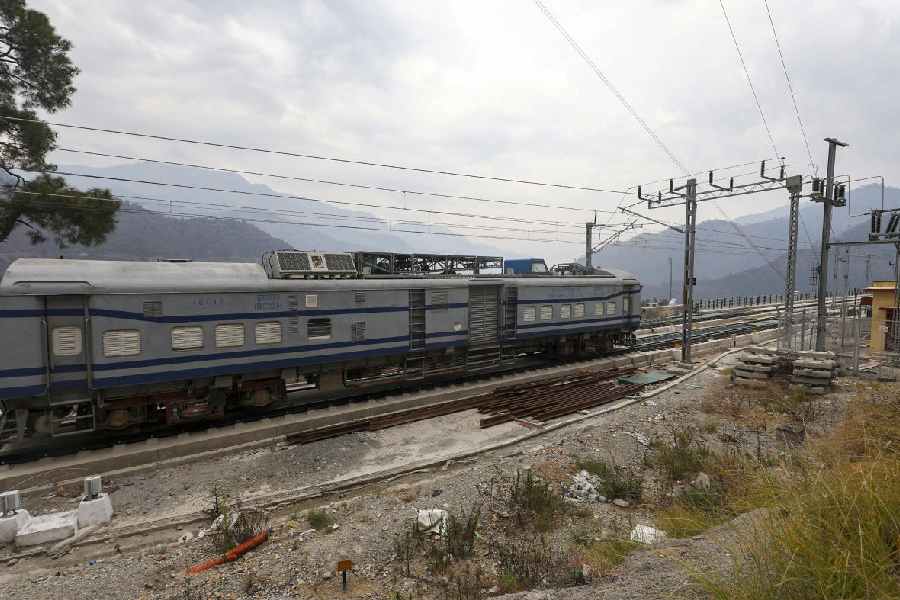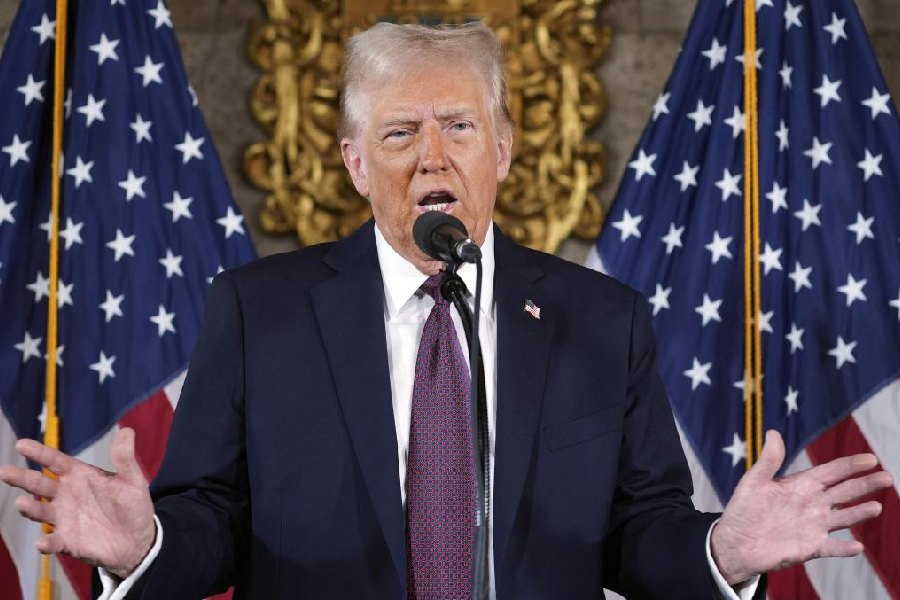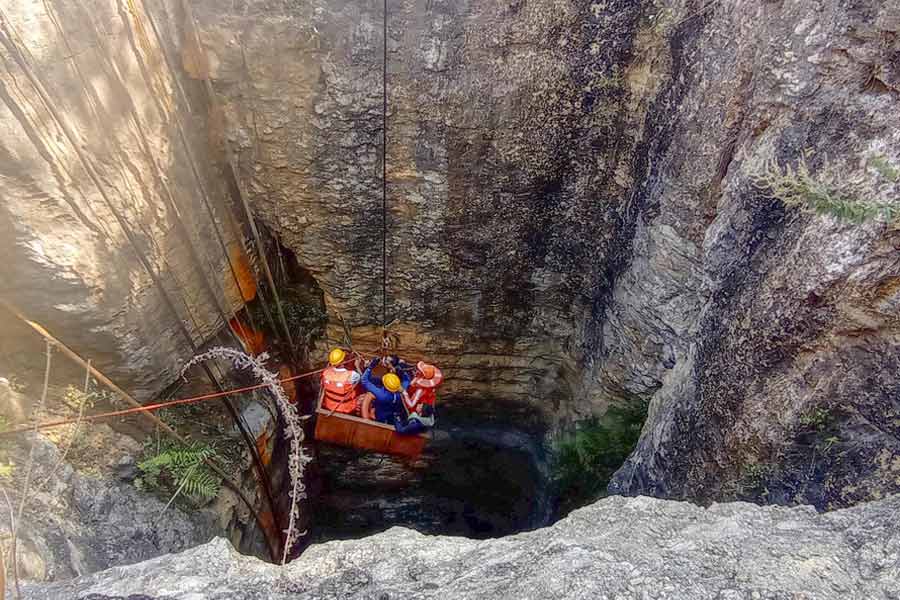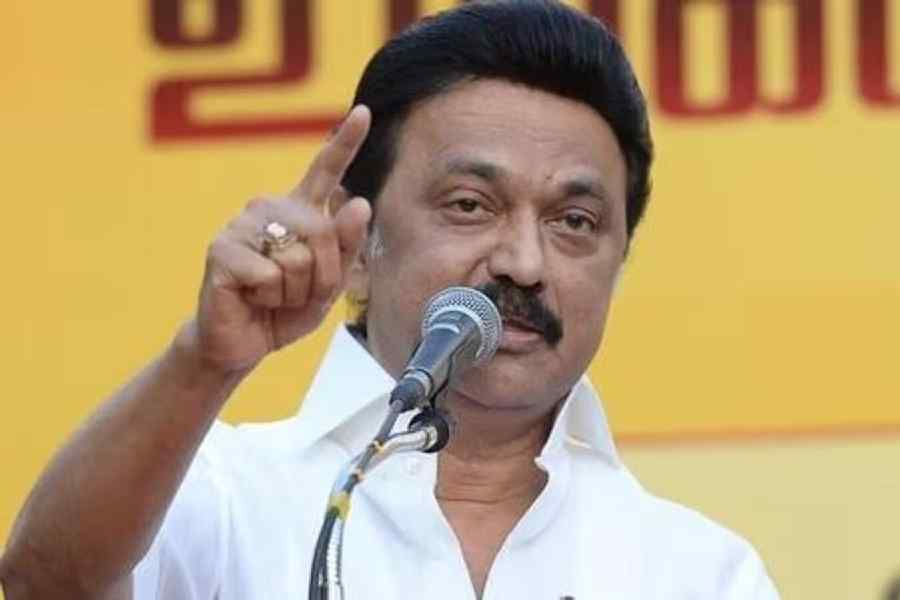The train to Kashmir is becoming a reality at last after a successful trial run on the crucial last leg on Saturday, with the project taking another leap on Monday as Prime Minister Narendra Modi virtually inaugurated a railway division in Jammu.
The inauguration saw chief minister Omar Abdullah allaying fears in Jammu that the project would deal another blow to the region’s economy.
The train to Kashmir is expected to formally start rolling after January 20. The final trial runs are scheduled on Tuesday and Wednesday. With this, Kashmir will be connected to the rest of the country by rail.
The Udhampur-Baramulla project was first proposed by Dogra ruler Maharaja Pratap Singh in 1898. A preliminary survey was done but the project was shelved because of the huge costs involved. Over the years, tracks were laid up till Udhampur, 65km ahead of Jammu, in 1983 but no real progress could be made until then Prime Minister Atal Bihari Vajpayee declared it a national project in 2001 and set a completion deadline of 2007.
The project has missed multiple deadlines and the cost has shot up six times to nearly ₹35,000 crore.
While launching a slew of railway projects on Monday, Modi said the new division would benefit not only Jammu and Kashmir but several cities in Punjab and Himachal Pradesh, besides also creating more convenient travel options for the people of Ladakh.
“Jammu and Kashmir is setting new records in rail infrastructure today,” he said.
The programme brought lieutenant governor Manoj Sinha and Omar together on an official platform for the first time after the chief minister took oath of office.
Sinha said another golden chapter had been added to the Northern Railway with Jammu becoming its sixth division. The new division will involve the reorganisation of the Firozpur division in Punjab, which now manages railway services in Jammu and Kashmir.
“The dream of connecting Kashmir with Kanyakumari by rail will be fulfilled soon,” Sinha said.
Omar congratulated the people of Jammu and Kashmir and applauded Modi for fulfilling a long-pending demand.
The Jammu division will manage the Udhampur-Srinagar-Baramulla Railway Link (USBRL) project, which is nearing completion.
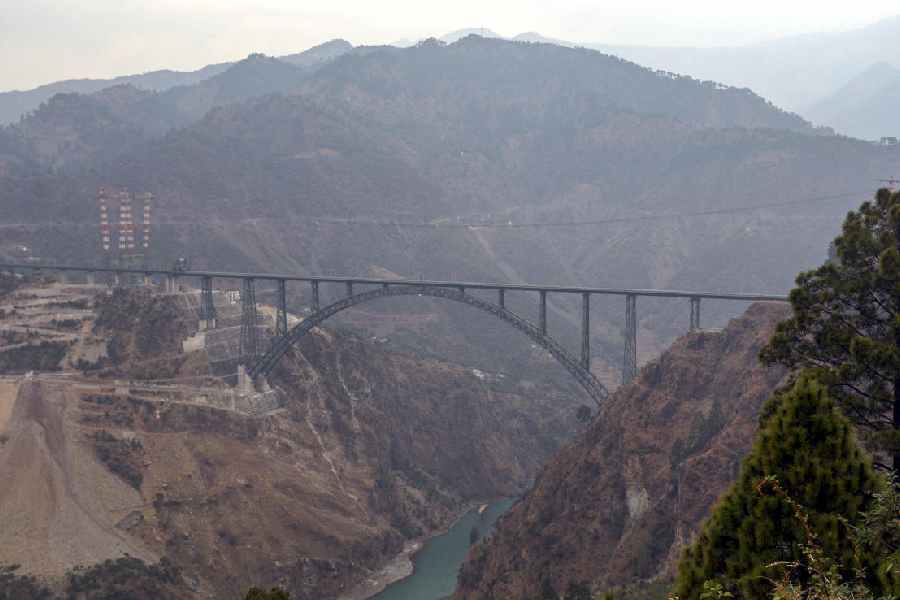
A view of the under-construction Chenab Rail Bridge, the world's highest railway bridge, in Reasi district, Jammu and Kashmir, Sunday, Jan. 5, 2025.
Omar’s immediate concern appeared to address the worries of the Jammu region who fear a direct rail link to Kashmir would further rob the region of businesses.
The chief minister said Jammu would not suffer economic losses due to the direct rail link to Kashmir, rather the project was expected to create jobs, enhance trade and boost tourism.
“I know there are some worries with regard to Jammu, particularly in Jammu. When rail came to Jammu from Pathankot, Pathankot faced some hardships. Now there are worries here (in Jammu) that once the train goes to Kashmir, Jammu might face the same problem,” Omar said.
“On behalf of my government I can say that Jammu will not suffer any loss with trains going to Kashmir. But we hope and assure Jammu that it will benefit the region. Trade and tourism will get a fillip. This will increase travel (between Jammu and Kashmir),” he added.

